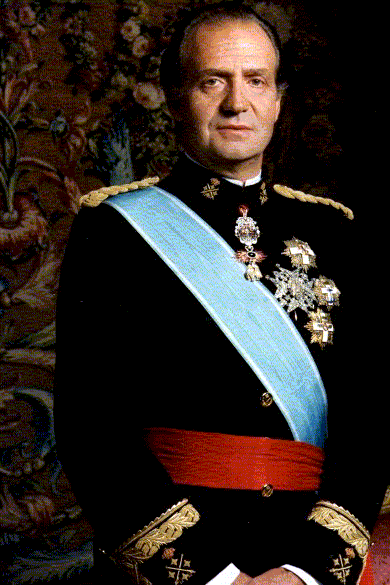Politics

The Spanish Constitution of 1978 is the culmination of the Spanish transition to democracy. The constitutional history of Spain dates back to the constitution of 1812. Impatient with the pace of democratic political reforms in 1976 and 1977, Spain's new King Juan Carlos, known for his formidable personality, dismissed Carlos Arias Navarro and appointed the reformer Adolfo Suárez as Prime Minister. The resulting general election in 1977 convened the Constituent Cortes (the Spanish Parliament, in its capacity as a constitutional assembly) for the purpose of drafting and approving the constitution of 1978. After a national referendum on 6 December 1978, 88% of voters approved of the new constitution.
As a result, Spain is now composed of 17 autonomous communities and two autonomous cities with varying degrees of autonomy thanks to its Constitution, which nevertheless explicitly states the indivisible unity of the Spanish nation as well as that Spain has today no official religion but all are free to practice and believe as they wish.
As of November 2009, the government of Spain keeps a balanced gender equality ratio. Nine out of the 18 members of the Government are women. Under the administration of José Luis Rodríguez Zapatero, Spain has been described as being "at the vanguard" in gender equality issues and also that "[n]o other modern, democratic, administration outside Scandinavia has taken more steps to place gender issues at the centre of government". The Spanish administration has also promoted gender-based positive discrimination by approving gender equality legislation in 2007 aimed to provide equality between genders in the Spanish political and economic life (Gender Equality Act). However, in the legislative branch, as of July 2010 only 128 out of the 350 members of the Congress are women (36.3%). Nowadays, it positions Spain as the 13th country with more women in its lower house. In the Senate, the ratio is even lower, since there are only 79 women out of 263 (30.0%). The Gender Empowerment Measure of Spain in the United Nations Human Development Report is 0.794, the 12th in the world.
Branches of government
Spain is a constitutional monarchy, with a hereditary monarch and a bicameral parliament, the Cortes Generales. The executive branch consists of a Council of Ministers of Spain presided over by the Prime Minister, nominated and appointed by the monarch and confirmed by the Congress of Deputies following legislative elections. By political custom established by King Juan Carlos since the ratification of the 1978 Constitution, the king's nominees have all been from parties who maintain a plurality of seats in the Congress.
The legislative branch is made up of the Congress of Deputies (Congreso de los Diputados) with 350 members, elected by popular vote on block lists by proportional representation to serve four-year terms, and a Senate (Senado) with 259 seats of which 208 are directly elected by popular vote and the other 51 appointed by the regional legislatures to also serve four-year terms.
Head of State
King Juan Carlos I, since 22 November 1975
Head of Government
Prime Minister of Spain (Spanish Presidente del Gobierno literally President of the Government): José Luis Rodríguez Zapatero, elected 14 March 2004.
-
First Vice President and Minister of Interior: Alfredo Pérez Rubalcaba.
-
Second Vice President and Minister of Economy and Finance: Elena Salgado.
-
Third Vice President and Minister of Territorial Policy: Manuel Chaves.
Cabinet
Council of Ministers (Spanish Consejo de Ministros) designated by the Prime Minister.
The Spanish nation is organizationally composed in the form of called Estado de las Autonomías ("State of Autonomies"); it is one of the most decentralized countries in Europe, along with Switzerland, Germany and Belgium; for example, all Autonomous Communities have their own elected parliaments, governments, public administrations, budgets, and resources; therefore, health and education systems among others are managed regionally, besides, the Basque Country and Navarre also manage their own public finances based on foral provisions. In Catalonia and the Basque Country, a full fledged autonomous police corps replaces some of the State police functions (see Mossos d'Esquadra, Ertzaintza, Policía Foral and Policía Canaria).
(http://en.wikipedia.org/wiki/Spain)
Back
| 
